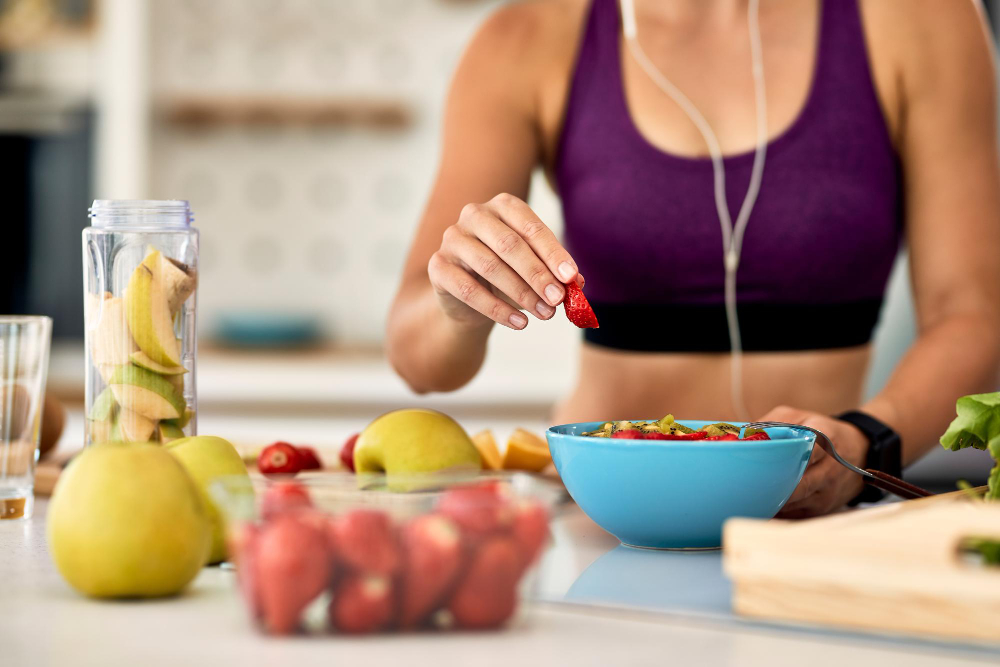In the quest for optimal fitness, nutrition stands as the cornerstone, providing vital raw materials for energy, muscle growth, and repair. As our understanding of dietary science deepens, the synergy between what we eat and how we perform becomes increasingly clear. Embarking on a fitness journey without considering the fuel that powers it is akin to setting sail without the wind. This article highlights the pivotal role a well-curated diet plays in achieving peak physical condition, presenting the nutrition essentials and key foods that can elevate your fitness regime.
The Foundation of Fitness: Understanding Macronutrients
Central to any discussion about fitness nutrition are macronutrients – carbohydrates, proteins, and fats. Each serves a unique purpose in the body’s metabolic orchestra.
Carbohydrates: The Premier Fuel Source
Carbohydrates are often vilified in popular diet culture, but for the physically active, they are indispensable. As the preferred energy source for high-intensity exercise, quality carbs like whole grains, fruits, vegetables, and legumes supply the glucose that keeps muscles moving and the brain focused. Complex carbohydrates, providing fiber, vitamins, and sustained energy release, should make up about 45 to 65 percent of one’s daily caloric intake, especially for those with rigorous workout routines.
Protein: The Building Blocks
Protein is the scaffold on which muscle is built and repaired. With every workout challenging muscle fibers, adequate protein becomes critical for recovery and growth. Individuals are generally recommended to ingest approximately 0.8 grams of protein per kilogram of their body weight.
Nevertheless, athletes may find it beneficial to elevate this intake to support the repair and reconstruction of muscle tissue. For high-quality protein, one can turn to options like lean poultry, fish, and dairy. Plant-based proteins also make the cut, with choices like beans and tofu providing good alternatives.
Fats: Vital but Misunderstood
Fats, often needlessly feared, serve an essential role in maintaining health and enhancing exercise performance. They are a dense energy source and facilitate the absorption of fat-soluble vitamins. Particularly, unsaturated fats from sources like nuts, seeds, avocados, and olive oil can help mitigate inflammation, a common byproduct of intense training.
Timing and Pre-Workout Nutrition
An optimally fueled workout begins well before the first drop of sweat falls. Pre-workout nutrition should focus on providing a moderate amount of complex carbohydrates and lean protein to ensure a steady supply of energy and amino acids for muscle function and repair. For many, a simple banana with a smear of almond butter strikes the right balance, delivering both quick-acting energy and protein. Ideally, this balanced snack should be consumed 1-3 hours before initiating exercise, to avoid gastrointestinal discomfort and provide adequate time for digestion.
The Post-Workout Window: An Opportunity for Repair
Post-exercise, the body is in a state primed for repair and replenishment. Within 15 minutes after a workout, muscles are receptive to a flux of nutrients, particularly protein, to begin the repair process. This timing is critical – a swift intake of protein, alongside carbohydrates to replenish depleted glycogen stores, accelerates recovery and muscle synthesis. A whey protein shake or a Greek yogurt with berries can serve as excellent post-workout choices.
Hydration: The Unsung Hero
Water plays a role in every cellular process, including those that drive exercise performance and recovery. Proper hydration is a continuous requirement, whether pre-, intra-, or post-workout. Fluids aid in temperature regulation, joint lubrication, and nutrient transport. The simplest yet most powerful nutrition strategy might just be keeping a water bottle at hand.
Nutrient-Rich Superfoods for Fitness
To bring the concept of fitness-oriented nutrition into practical terms, here are some staple foods every active individual should consider:
- Leafy Greens: Spinach and kale are loaded with vitamins, minerals, and antioxidants.
- Berries: A high nutrient profile with antioxidants to combat workout-induced stress.
- Whole Grains: Brown rice and quinoa offer complex carbohydrates for sustained energy.
- Eggs: A complete protein with a full amino acid profile.
- Sweet Potatoes: High in fiber and beta-carotene, an antioxidant.
- Nuts and Seeds: For healthy fats, protein, and fiber, nuts and seeds are powerhouse snacks.
- Salmon: Rich in omega-3 fatty acids and protein, it supports muscle repair and heart health.
Integrating Knowledge into Practice
Understanding these nutrition basics is only the first step; implementation is key. Begin by assessing your diet, and identify opportunities to replace refined grains with whole-grain alternatives, integrate more lean proteins, and increase the diversity of fruits and vegetables on your plate. Be conscientious of your pre-and post-workout meals, ensuring they’re timed and composed to support your exercise demands. Finally, listen to your body; adapt and modify your intake based on your fitness progress and how you feel during workouts.
In conclusion, the pursuit of fitness is a holistic endeavor where nutrition is as critical as the workouts themselves. To truly reap the benefits of any fitness regimen, attention to diet cannot be overstated. By consuming the right balance of macronutrients and hydrating properly, we fuel our bodies for peak performance and recovery. Moreover, including a variety of superfoods enriches our diet with a spectrum of essential nutrients, promoting long-term health and fitness resilience.
